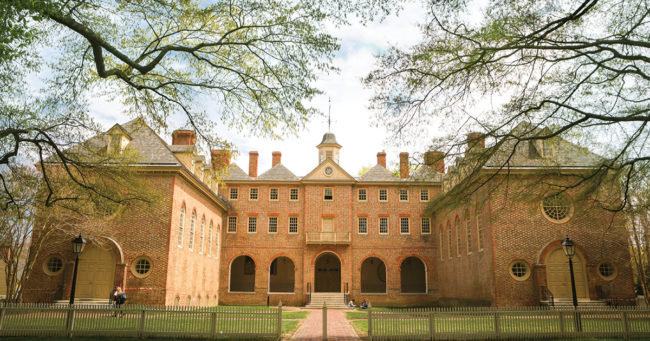Filmmaker, human rights activist and Emory University professor Isabella Alexander visited the College of William and Mary Friday, Nov. 17 to preview her film, “The Burning” and discuss her work with migrants in Morocco and the ongoing African migration crisis.
The title is based off the Moroccan-Arabic term for illegal immigration, “hrig,” which translates directly to “burning.”
“This signifies the physical burning of one’s material identity — so one’s passport, birth certificate and other state-issued ID cards,” Alexander said. “It also signifies this symbolic burning of one’s identity, or one’s past, in hopes that they will reach a better future on foreign soil.”
Alexander has been working back and forth between Morocco and the United States since she first arrived in Morocco in 2007 as a senior in college, specifically focusing on sub-Saharan migrants attempting to enter the Spanish enclaves of Ceuta and Melilla, which border Morocco.
In the summer of 2014, I first made a temporary home for myself and began collecting the stories of sub-Saharan migrants who were being repatriated not to their countries of origin, but to this desolate strip of land in the desert,” Alexander said.
“In the summer of 2014, I first made a temporary home for myself and began collecting the stories of sub-Saharan migrants who were being repatriated not to their countries of origin, but to this desolate strip of land in the desert,” Alexander said. “From here, they have no choice but to walk back into Morocco and begin the cycle of attempted crossings and illicit deportation once again.”
The film follows three of these individuals: a boy named Bambino, who was 12 when filming began, a woman named Yasmine, who lost her husband when he tried the same crossing, and a man named Phino, who fled the Democratic Republic of the Congo and has now been trapped in Morocco for over 15 years.
Much of Alexander’s presentation focused on these migrants’ experiences living in what she describes as a liminal space for such an extended period. Boys and young men form groups called “Brotherhoods” along lines of nationality.
“They spend weeks and oftentimes months training for each crossing, just like one would train for an elite military mission,” Alexander said.
These Brotherhoods usually live in the Moroccan wilderness, surviving off food scraps foraged from the outdoors and from trash bins. These groups have formed their own culture, which includes taking on names as a form of an aspirational identity.
“These names commonly include the names of actual people or places. One boy, for instance, calls himself John Kennedy Jr. because he once saw a film about this American president, and said that he seems like a good man,” Alexander said.
Alexander’s presentation included pictures of the individuals in these groups, their makeshift homes, which are sometimes raided by Moroccan authorities, and the rocks that they paint, a ritual done before each attempted crossing.
Mary Chen ’18 attended the presentation due to her passion for the crisis, having recently studied abroad in Morocco, where she focused on migrant children.
I think [Alexander’s] presentation was really informational in the sense that it was very visual,” Chen said.
“I think [Alexander’s] presentation was really informational in the sense that it was very visual,” Chen said. “She had very individualized examples. The thing I remembered most was the paintings, the graffiti on the rocks. I really felt like, “Wow, I’ve never seen anything like that before.” Actually seeing these examples was very shocking.”
The movie was almost completely filmed by Alexander herself, though she took a crew of two additional people on one trip. She said this was done so she could take more risks herself without putting any others at risk and out of cost concerns. The film is funded by private donations, small grants and Alexander’s own money.
“I put my life savings into this,” Alexander said. “I hope [‘The Burning’] reaches a broad public, and encourages them to think differently about the distinction we make between migrants and refugees, and realize the fact that there are racial and gendered motivations behind how people are categorized. I hope that it takes what is a really huge, global, overwhelming crisis, and humanizes it, so that we can remember that there are still individuals who are trapped here, even within the 65 million.”
The film is slated for release in the summer of 2018.
“On the highest level, I hope that this footage provides what the public needs to have a public outcry,” Alexander said. “I hope it provides evidence that’s needed about the rampant human rights violations in North Africa, and about the [European Union’s] involvement in them. I’m not even asking for a change in practices, but simply asking for our international human rights law to be respected in these spaces.”

